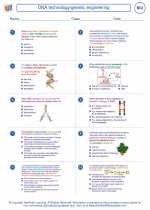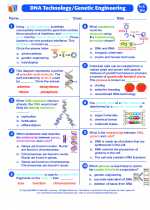Maintenance in Biology
Maintenance in biology refers to the processes by which an organism maintains its internal environment within certain physiological limits, despite the external changes. This is crucial for the survival of organisms, as it allows them to function properly and carry out essential biological processes.
Homeostasis
Homeostasis is the key concept related to maintenance in biology. It is the ability of an organism to maintain internal stability and balance, despite the changing external environment. This is achieved through the regulation of various physiological processes such as temperature, pH, water balance, and nutrient levels.
Examples of Maintenance in Biology
- Temperature Regulation: Organisms maintain a stable body temperature through processes such as sweating or shivering in response to external temperature changes.
- Water Balance: Regulation of water intake and excretion to maintain proper hydration levels within the body.
- pH Balance: Regulation of acid-base balance to keep the internal environment within a specific pH range.
- Nutrient Regulation: Control of nutrient intake and metabolism to provide the necessary energy and building blocks for cells.
Importance of Maintenance in Biology
Maintenance processes are essential for the survival and proper functioning of organisms. Without these mechanisms, the internal environment would become unstable, leading to cellular dysfunction and ultimately, death. Understanding maintenance in biology is crucial for understanding how living organisms adapt and survive in their environments.
Study Guide for Maintenance in Biology
To study maintenance in biology, it is important to focus on the following key areas:
- Understand the concept of homeostasis and its importance in biological systems.
- Learn the specific mechanisms and processes involved in temperature regulation, water balance, pH balance, and nutrient regulation.
- Explore examples of maintenance in different organisms, including humans and other animals, as well as plants.
- Study the impact of external factors such as stress, diet, and environmental changes on maintenance processes.
- Review case studies and research articles related to maintenance in biology to understand real-world applications and implications.
By focusing on these areas, you can gain a comprehensive understanding of maintenance in biology and its significance for living organisms.
.◂Biology Worksheets and Study Guides High School. DNA technology/genetic engineering

 Worksheet/Answer key
Worksheet/Answer key
 Worksheet/Answer key
Worksheet/Answer key
 Worksheet/Answer key
Worksheet/Answer key
 Vocabulary/Answer key
Vocabulary/Answer key
 Vocabulary/Answer key
Vocabulary/Answer key
 Vocabulary/Answer key
Vocabulary/Answer key
